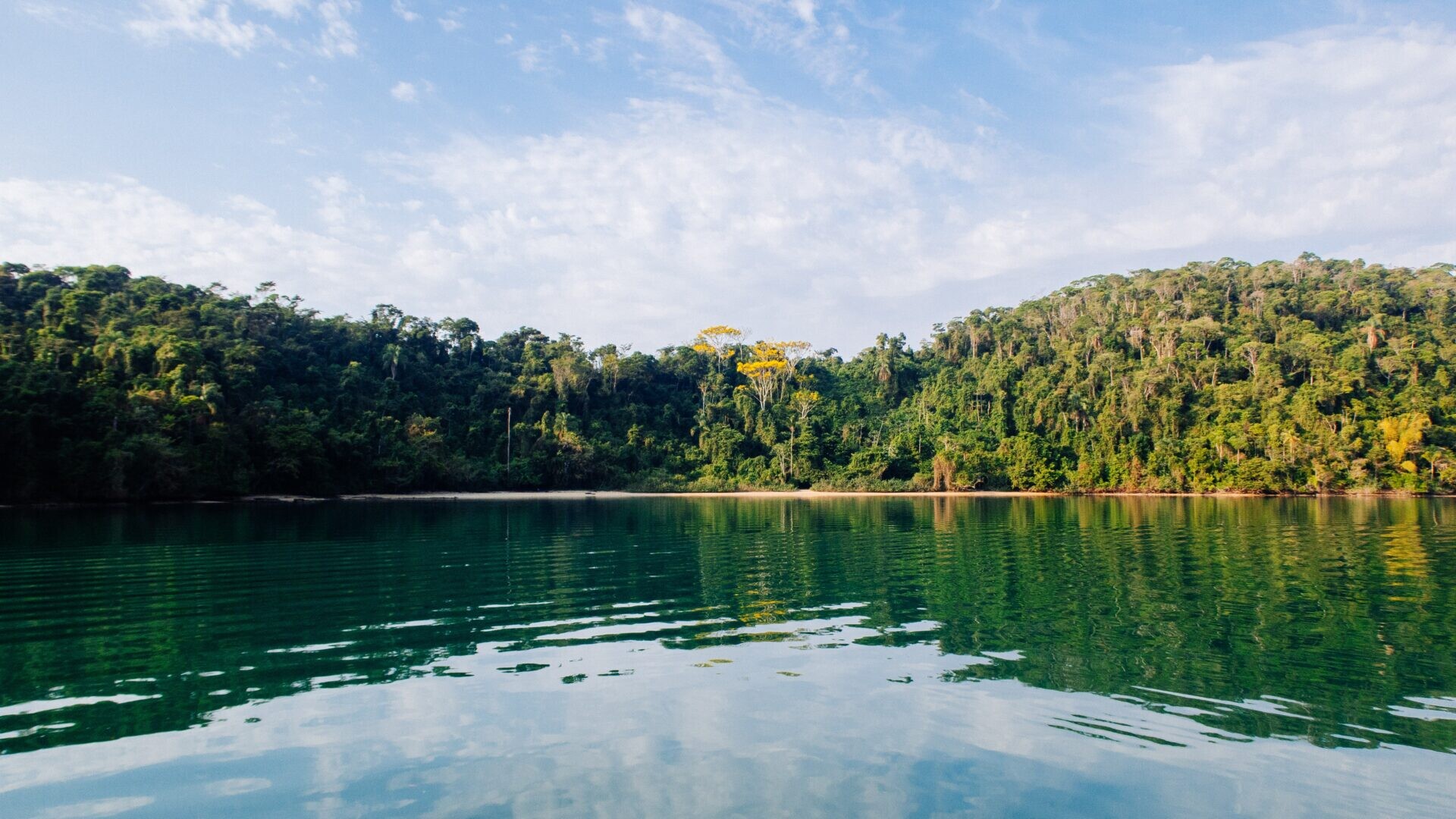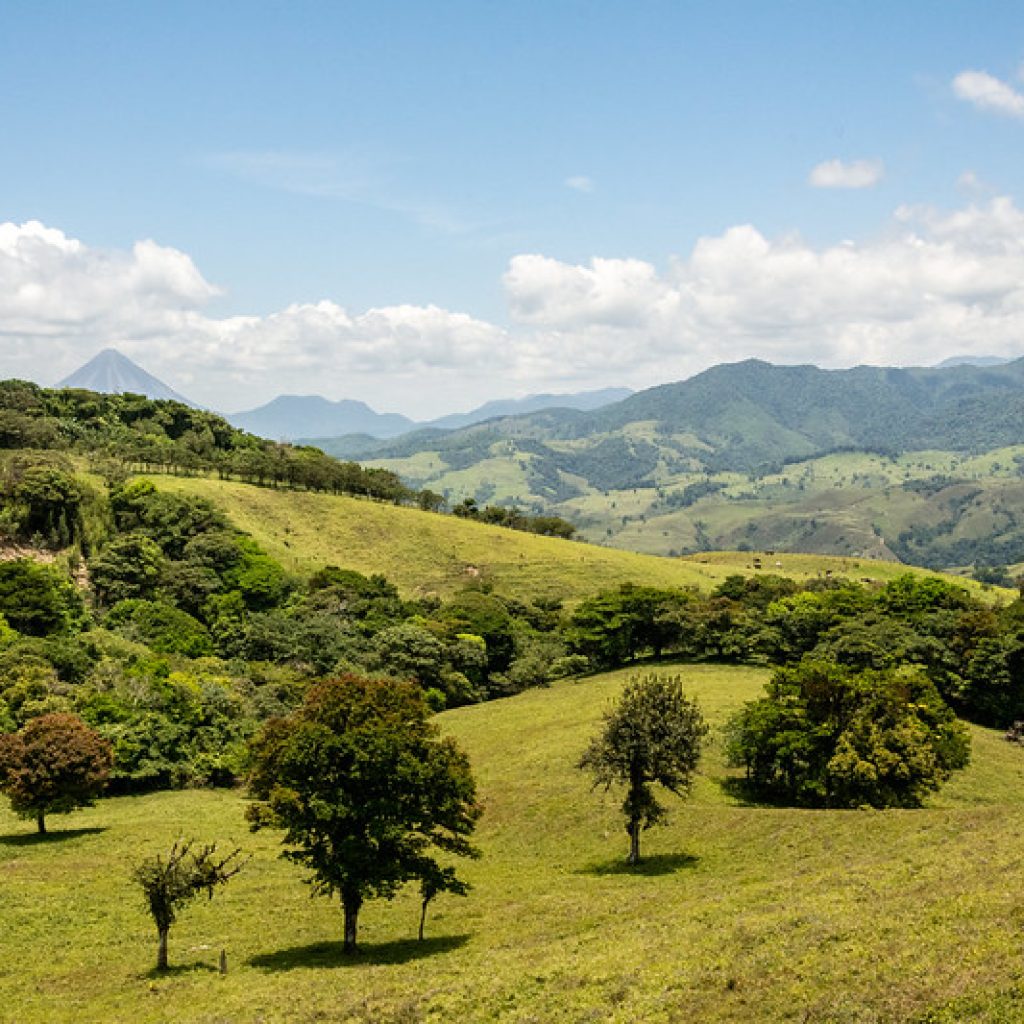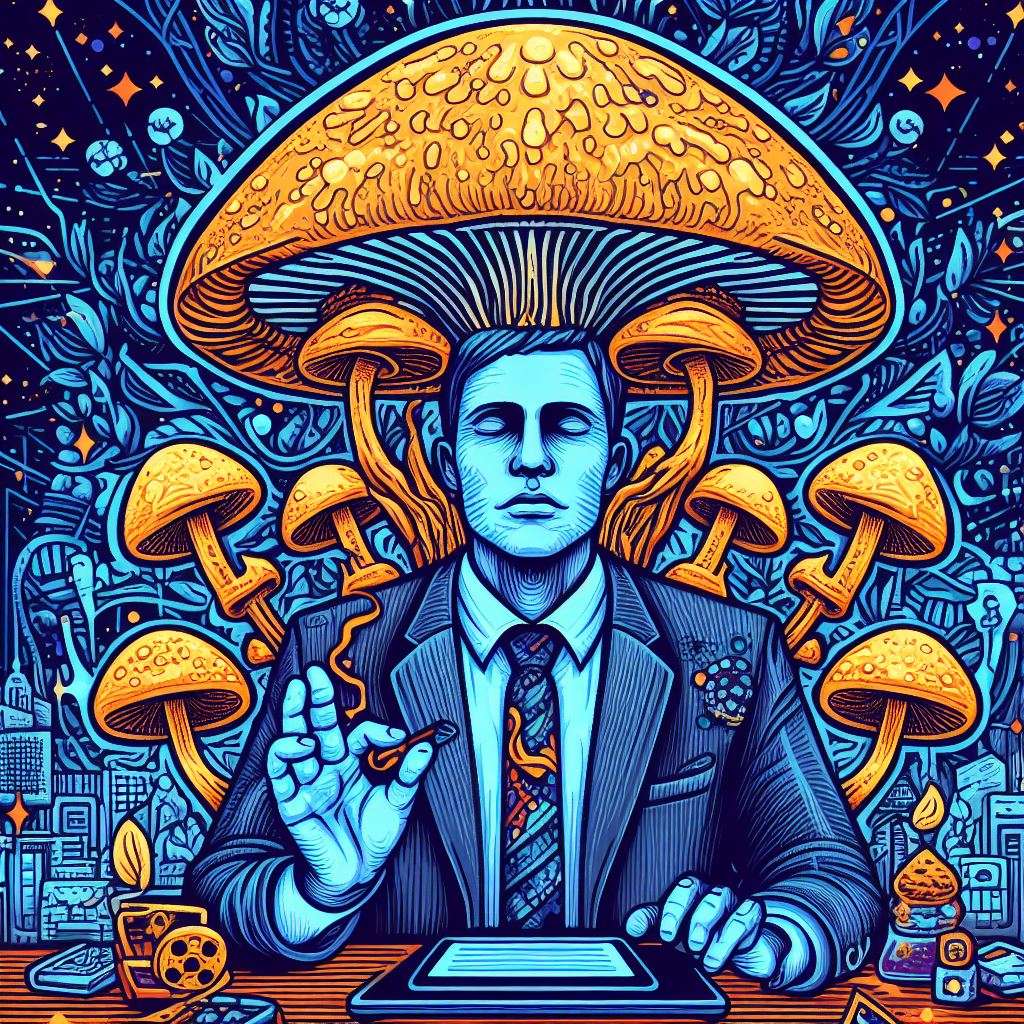The Rise of Psychedelic Therapy
The renaissance of psychedelic therapy can be attributed to a growing body of scientific research showcasing the potential of substances like psilocybin in treating mental health disorders such as depression, anxiety, and post-traumatic stress disorder (PTSD). The therapeutic benefits of psychedelics extend beyond symptom relief, as they have been shown to facilitate profound personal insights, spiritual experiences, and lasting positive changes in one’s worldview.
Understanding Psilocybin Retreats
Psilocybin retreats are immersive experiences that provide individuals with a structured and supportive environment to explore the therapeutic potential of psilocybin. These retreats typically take place in carefully selected settings, often in nature-rich locations, and are facilitated by experienced professionals who guide participants through the psilocybin experience.
In this article, we will delve into the science behind psilocybin, explore the different types of psilocybin retreats available, discuss the benefits associated with these retreats, and outline the process involved in a typical psilocybin retreat. Additionally, we will touch upon safety considerations and legal and ethical aspects related to psilocybin retreats.
The Science Behind Psilocybin
The History of Psilocybin Use
Psilocybin has a rich history of use dating back thousands of years, with evidence of its ceremonial and therapeutic use found in various cultures around the world. Indigenous communities in Central and South America, such as the Mazatec people of Mexico, have long recognized the transformative properties of psilocybin-containing mushrooms. These mushrooms were considered sacred and were used in religious rituals and healing ceremonies to promote spiritual insights and psychological well-being.
How Psilocybin Works in the Brain
Psilocybin interacts with serotonin receptors in the brain, particularly the 5-HT2A receptors, which are involved in the regulation of mood, perception, and cognition. When ingested, psilocybin is converted into its active form, psilocin, which binds to these receptors, leading to alterations in neural activity and communication within various brain regions.
Research using neuroimaging techniques, such as functional magnetic resonance imaging (fMRI), has demonstrated that psilocybin increases the connectivity between different brain regions that are normally less connected. This heightened connectivity can lead to a breakdown of rigid patterns of thinking and facilitate novel connections and insights. The unique effects of psilocybin on brain activity provide a neurobiological basis for its potential therapeutic effects.
Research on Psilocybin’s Therapeutic Effects
Over the past two decades, a resurgence of research on the therapeutic potential of psilocybin has yielded promising results. Studies have shown its efficacy in alleviating symptoms of treatment-resistant depression, anxiety related to life-threatening illnesses, and PTSD.
For instance, studies have reported positive outcomes in the treatment of depression and anxiety disorders, with enduring improvements in mood, well-being, and quality of life.
These findings have prompted the recognition of psilocybin as a breakthrough therapy by the U.S. Food and Drug Administration (FDA), paving the way for further research and potential future approvals for therapeutic use.
Exploring Psilocybin Retreats
What Are Psilocybin Retreats?
Psilocybin retreats offer individuals a unique opportunity to embark on a transformative journey within a safe and supportive environment. These retreats typically involve a structured program that combines psilocybin experiences with various therapeutic and integration practices. Participants are guided by experienced facilitators who help navigate the psychedelic experience and facilitate deep introspection and personal growth.
Different Types of Psilocybin Retreats
- Traditional Indigenous Ceremonies: Some retreats draw inspiration from traditional indigenous practices, incorporating elements of indigenous rituals and wisdom. These ceremonies often involve the guidance of indigenous healers or shamans who have a deep understanding of the traditional ceremonial use of psilocybin.
- Modern Medical and Therapeutic Retreats: Medical and therapeutic retreats are designed with a focus on psychological healing and personal growth. These retreats often take place in clinical or retreat center settings, and they provide a structured framework for participants to explore their inner worlds under the supervision of trained therapists or facilitators.
- Recreational Retreats and Wellness Centers: Recreational retreats and wellness centers offer a more relaxed and recreational approach to psilocybin experiences. These retreats may incorporate elements of spirituality, mindfulness, and personal development, but they generally prioritize well-being and relaxation rather than clinical therapeutic outcomes.
Choosing the Right Psilocybin Retreat
When considering a psilocybin retreat, several factors should be taken into account:
- Location and Setting: The physical environment can significantly impact the retreat experience. Many retreats choose serene and nature-rich locations that provide a conducive atmosphere for introspection and connection with nature. Consider the setting that resonates with you and supports your intentions.
- Safety and Professional Guidance: Ensure that the retreat you choose prioritizes safety and provides professional guidance. Look for retreats that have experienced facilitators or therapists who are trained in working with psychedelics and have a solid understanding of psychological processes.
- Retreat Duration and Program Structure: Retreats can vary in duration, ranging from a few days to several weeks. Consider the length of time that feels appropriate for you and the structure of the program. Some retreats may include preparatory and integration sessions before and after the psilocybin experience, which can enhance the overall benefit.
- Integration and Follow-up Support: Integration is a vital aspect of the retreat experience. Find out if the retreat offers integration support, such as post-retreat integration sessions or access to resources that help individuals integrate their insights and experiences into their daily lives.
By carefully considering these factors, you can choose a psilocybin retreat that aligns with your intentions and provides a safe and transformative journey. In our next section, we will explore the benefits of psilocybin retreats, including psychological healing, spiritual experiences, and personal growth
Benefits of Psilocybin Retreats
Psilocybin retreats offer a range of potential benefits, encompassing psychological healing, spiritual experiences, and personal growth. Let’s explore some of these transformative outcomes:
Psychological Healing and Emotional Well-being
- Treating Depression and Anxiety: Psilocybin has shown promising results in alleviating symptoms of depression and anxiety. Research suggests that the substance can induce a state of heightened emotional openness and increase individuals’ ability to process difficult emotions, leading to a reduction in depressive and anxious symptoms.
- Overcoming Trauma and PTSD: Psilocybin has demonstrated potential in helping individuals heal from trauma and post-traumatic stress disorder (PTSD). The substance can facilitate a process of revisiting and reprocessing traumatic memories in a safe and supportive environment, leading to increased emotional resilience and a reduction in PTSD symptoms.
- Enhancing Emotional Resilience: Psilocybin retreats can help individuals develop emotional resilience by allowing them to confront and work through challenging emotions. The experiences facilitated in these retreats often provide a profound sense of catharsis and emotional release, promoting healing and emotional well-being.
Spiritual and Transpersonal Experiences
- Connecting with a Higher Power or Universal Consciousness: Psilocybin has the potential to elicit spiritual experiences characterized by a sense of connection with something greater than oneself. Many individuals report feelings of unity with nature, a higher power, or a universal consciousness, which can foster a sense of meaning and purpose in life.
- Nurturing a Sense of Unity and Oneness: Psilocybin retreats often facilitate experiences of interconnectedness and oneness. Participants may develop a deeper understanding of the interrelatedness of all things, fostering compassion, empathy, and a sense of unity with others and the world around them.
- Exploring Existential and Meaning-of-Life Questions: Psilocybin experiences can bring individuals face-to-face with existential questions about the nature of reality, life, and one’s purpose. This exploration can lead to profound insights and a deeper understanding of oneself and the world, contributing to personal growth and a sense of existential fulfillment.
Personal Growth and Self-Reflection
- Increasing Self-Awareness and Mindfulness: Psilocybin retreats offer opportunities for deep introspection and self-reflection. The heightened state of consciousness induced by psilocybin can foster self-awareness and mindfulness, enabling individuals to gain insights into their patterns of thinking, behavior, and emotions.
- Facilitating Creativity and Problem-Solving: Psilocybin has been associated with enhanced creativity and problem-solving abilities. The altered state of consciousness can open up new perspectives and unconventional thinking, allowing individuals to approach challenges with fresh insights and innovative solutions.
- Promoting Personal Empowerment and Life Changes: Through the introspective experiences facilitated in psilocybin retreats, individuals often gain a sense of personal empowerment. This newfound empowerment can inspire individuals to make positive changes in their lives, such as adopting healthier habits, pursuing fulfilling relationships, or embarking on new career paths.
Psilocybin retreats hold immense potential for personal transformation, offering individuals the opportunity to heal psychologically, explore their spirituality, and foster personal growth. In our next section, we will delve into the process of a typical psilocybin retreat, including pre-retreat preparation, the retreat experience itself, and post-retreat integration and aftercare
The Process of a Psilocybin Retreat
Psilocybin retreats involve a carefully structured process that encompasses pre-retreat preparation, the retreat experience itself, and post-retreat integration and aftercare. Let’s explore each phase in detail:
Pre-Retreat Preparation
- Medical Screening and Assessment: Prior to participating in a psilocybin retreat, individuals typically undergo a thorough medical screening and assessment. This ensures that they are physically and mentally suitable for the experience and helps identify any potential contraindications or risks.
- Dietary Guidelines and Restrictions: Retreat organizers often provide specific dietary guidelines leading up to the retreat. Certain foods and substances, such as alcohol and certain medications, may need to be avoided in the days preceding the retreat to optimize the effectiveness and safety of the psilocybin experience.
- Mental and Emotional Readiness: It is crucial for individuals to engage in self-reflection and consider their mental and emotional readiness for the retreat. This involves examining one’s intentions, expectations, and any emotional concerns or challenges that may arise during the experience.
During the Retreat
- Ceremony Structure and Rituals: Psilocybin retreats typically include one or more ceremonial sessions where participants consume a carefully measured dose of psilocybin. These ceremonies often incorporate rituals, such as guided meditations, music, and the presence of facilitators or guides, creating a supportive and sacred space for the experience.
- The Role of Facilitators and Guides: Experienced facilitators or guides play a crucial role during the retreat. They provide emotional support, ensure the safety of participants, and help navigate the psychedelic journey. Their presence helps individuals feel secure and allows for a deeper exploration of the transformative potential of psilocybin.
- Dosage and Administration of Psilocybin: The dosage of psilocybin used in retreats is carefully determined based on individual needs and intentions. Retreat organizers work with trained professionals to ensure the appropriate dosage and administration method, considering factors such as body weight, previous experiences, and desired outcomes.
Integration and Aftercare
- Post-Retreat Integration Practices: Integration refers to the process of incorporating the insights and experiences gained during the retreat into one’s daily life. Many retreats offer post-retreat integration practices, which may include individual or group integration sessions, therapeutic support, journaling, meditation, or other practices aimed at deepening the integration of the retreat experiences.
- Continued Support and Follow-up: Some retreats provide continued support and follow-up after the retreat. This can involve access to resources, online communities, or additional sessions with facilitators or therapists to assist participants in maintaining and building upon the progress made during the retreat.
- Long-Term Integration Strategies: Individuals are encouraged to develop their long-term integration strategies beyond the immediate post-retreat period. This may involve incorporating mindfulness practices, engaging in therapy or counseling, pursuing personal development activities, or integrating the lessons learned into various aspects of life.
By engaging in a well-structured process that includes pre-retreat preparation, the retreat experience itself, and post-retreat integration and aftercare, individuals can maximize the transformative potential of psilocybin retreats. In our next section, we will explore safety considerations and the legal and ethical aspects surrounding psilocybin retreats.
Safety and Considerations
While psilocybin retreats can offer transformative experiences, it is essential to approach them with careful consideration and prioritize safety. Here are some key factors to keep in mind:
Potential Risks and Adverse Effects
- Psychological Vulnerability: Individuals with a history of severe mental health conditions or those who are currently experiencing acute psychological distress should exercise caution when considering a psilocybin retreat. Psilocybin can amplify emotions and bring forth intense psychological experiences, which may be challenging for individuals who are not emotionally stable.
- Challenging Experiences: Psilocybin can induce challenging and emotionally intense experiences, commonly referred to as “bad trips.” These experiences may involve fear, anxiety, or a sense of losing control. Adequate preparation, professional guidance, and a supportive environment can help minimize the likelihood of challenging experiences and assist participants in navigating them if they arise.
- Potential for Harmful Behavior: In rare cases, individuals under the influence of psilocybin may engage in harmful or risky behaviors due to altered perception or impaired judgment. Retreat organizers should have safety protocols in place to prevent harm and ensure the well-being of all participants.
Contradictions and Precautions
- Medications and Medical Conditions: Some medications can interact negatively with psilocybin. It is important to disclose all medications and medical conditions to retreat organizers and follow their guidance regarding any necessary adjustments or precautions.
- Pregnancy and Breastfeeding: Psilocybin’s effects on pregnancy and breastfeeding are not well understood. Due to limited research in this area, it is generally recommended that pregnant or breastfeeding individuals avoid psilocybin use and retreats.
- Personal Readiness and Intention: Each individual’s readiness and intention for participating in a psilocybin retreat are crucial factors. It is important to engage in thorough self-reflection, understand personal motivations, and set clear intentions before embarking on a retreat. This self-assessment can help ensure that one is mentally prepared and in a suitable mindset for the experience.
Legal and Ethical Aspects of Psilocybin Retreats
The legality of psilocybin varies across different jurisdictions. While some regions permit its use for research or therapeutic purposes, others strictly prohibit it. It is essential to familiarize oneself with the local laws and regulations regarding psilocybin before considering participation in a retreat.
From an ethical standpoint, it is important to ensure that psilocybin retreats adhere to safety guidelines, provide informed consent, prioritize participant well-being, and operate within legal frameworks. Choosing reputable retreat centers with experienced professionals can help ensure an ethical and responsible retreat experience.
As interest in psilocybin retreats continues to grow, it is essential to approach them with caution, prioritize safety, and adhere to legal and ethical considerations. By doing so, individuals can maximize the potential benefits of these transformative experiences. In our concluding section, we will summarize the growing interest in psilocybin retreats and the potential for personal transformation they hold.
Conclusion
Psilocybin retreats have gained significant attention as a means of unlocking the mind and exploring transformative experiences. Through the careful use of psilocybin, these retreats offer individuals the opportunity to embark on a journey of personal growth, psychological healing, and spiritual exploration. By delving into the benefits, process, and safety considerations of psilocybin retreats, we have gained a deeper understanding of their potential.
The science behind psilocybin reveals its therapeutic effects on conditions such as depression, anxiety, and trauma. The psychological healing and emotional well-being that can result from these retreats offer hope for individuals seeking relief from mental health challenges. Furthermore, the spiritual and transpersonal experiences facilitated by psilocybin can provide individuals with a sense of connection, unity, and purpose, leading to profound insights and existential fulfillment.
Psilocybin retreats also promote personal growth and self-reflection. By increasing self-awareness, fostering creativity, and promoting personal empowerment, these retreats empower individuals to make positive changes in their lives and approach challenges with newfound resilience and clarity.
The process of a psilocybin retreat involves careful preparation, the facilitation of ceremonies by experienced guides, and post-retreat integration and aftercare. This structured approach ensures that participants have the necessary support and guidance throughout their transformative journey, promoting safety and maximizing the potential benefits of the experience.
It is important to consider safety and take necessary precautions when considering a psilocybin retreat. Being aware of potential risks, individual contraindications, and legal and ethical considerations is paramount. Responsible retreat organizers prioritize participant well-being and operate within legal frameworks, fostering a safe and supportive environment for exploration.
As interest in psilocybin retreats continues to grow, it is essential to approach them with an informed and responsible mindset. Engaging in thorough self-assessment, seeking professional guidance, and selecting reputable retreat centers are crucial steps in maximizing the potential for personal transformation while ensuring safety and ethical practices.
In conclusion, psilocybin retreats hold great promise for those seeking transformative experiences. By embracing the benefits of psilocybin retreats and approaching them with mindfulness, individuals have the opportunity to unlock the mind, heal psychologically, and embark on a path of personal growth and self-discovery. As research and public awareness continue to evolve, psilocybin retreats may become increasingly recognized for their potential to catalyze positive change and enhance overall well-being.
If you or someone you know is interested in exploring the potential benefits of psilocybin retreats for personal growth, psychological healing, or spiritual exploration, it is important to approach this option with caution and ensure adherence to legal and ethical boundaries. Psilocybin retreats, such as those offered by ONE Psilocybin Retreats, provide a structured and supportive environment for transformative experiences. However, it is essential to prioritize safety, consider individual contraindications, and be mindful of the legal regulations surrounding psilocybin retreats in your jurisdiction. Seeking guidance from qualified professionals and engaging in thorough research will help ensure a responsible and enriching experience.






No comment yet, add your voice below!